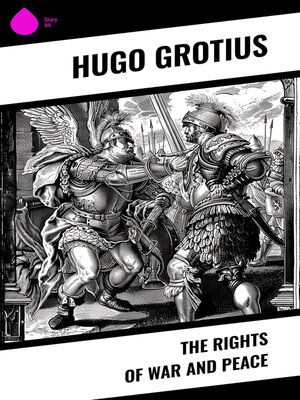
Sign up to save your library
With an OverDrive account, you can save your favorite libraries for at-a-glance information about availability. Find out more about OverDrive accounts.
Find this title in Libby, the library reading app by OverDrive.



Search for a digital library with this title
Title found at these libraries:
| Library Name | Distance |
|---|---|
| Loading... |
In "The Rights of War and Peace," Hugo Grotius presents a groundbreaking exploration of the principles governing conflict and diplomatic relations in the early 17th century. Combining elements of natural law and moral philosophy, Grotius meticulously articulates a framework that differentiates justified warfare from unjust aggression. His argumentation is characterized by a clear and logical prose style, enriched with historical examples from ancient and contemporary contexts, which serves to underscore the universality of his principles. This seminal work lays the groundwork for modern international law, weaving together ethical considerations and practical realities of governance in an era of burgeoning statehood and colonial expansion. Hugo Grotius, often heralded as the father of international law, wrote "The Rights of War and Peace" in a time marked by political upheaval and warfare in Europe, particularly the Thirty Years' War. His background as a lawyer, diplomat, and philosopher propelled him to investigate the moral underpinnings of state conduct. Grotius's experiences as a prisoner and his eventual exile informed his thoughts on the necessity for law and order in international relations, enhancing the poignancy and relevance of his arguments. This book is an essential read for anyone interested in the foundations of legal theory, ethics in international relations, or the historical context of warfare. Grotius's insightful analyses challenge readers to consider the moral implications of conflict and the structures needed to mitigate violence, making it a timeless work that resonates in today's global political landscape.







